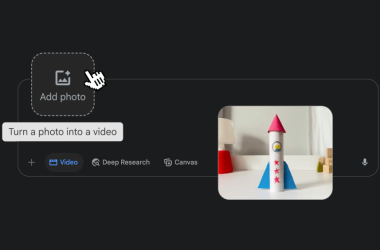 Google is reportedly moving to more direct sales of its Android smartphones and tablets in an apparent move to wrest control away from wireless carriers that install their own services on Android gear or block Google apps like Google Wallet.
Google is reportedly moving to more direct sales of its Android smartphones and tablets in an apparent move to wrest control away from wireless carriers that install their own services on Android gear or block Google apps like Google Wallet.
The so-called Nexus devices, using a familiar Google name, will run on the next version of the Android mobile operating system, dubbed Jelly Bean, with a portfolio of devices expected to go on sale by December.
The new direction, first reported by the Wall Street Journal relying on unnamed sources, aligns with various reports that indicate Google will work with hardware maker Asustek to launch, possibly in June, a pure Android tablet called Google Play to sell for $200.
That device is seen as a way for Google to compete against the $200 Kindle Fire from Amazon.com and Barnes & Noble’s Nook Tablet, which run on forked versions of Android that lessen user dependency on Google service and apps, analysts have said.
According to the unnamed sources in the Journal, Google plans to give multiple mobile device makers early access to new releases of Android, such as Jelly Bean or Android 5.0, and to sell those devices directly to consumers. Google’s current practice is to work with one vendor at a time to produce a lead device before releasing the latest software to other device makers. The lead devices are then sold to the public through retailers and wireless carriers.
In addition to giving Google more control over the end product, the new approach is also designed to give Motorola Mobility, which is being acquired by Google, access to Android software at about the same time as other manufacturers would get it.
Google wouldn’t comment on the story.
Analysts said the Nexus approach makes more sense than Google’s strategy thus far. “This is a good thing,” said Ken Dulaney, an analyst at Gartner. “It gives Google a smaller set of phones to launch, making it a more focused event, and it assuages fears by OEMs that Motorola will get advantages,” he said.
Google has wrestled with getting updated software to phones and through carriers in a timely manner, Dulaney said, so it’s possible the Nexus approach will help speed up the process. “It’s really unfortunate how slow Google has been to get Android 4.0 on some existing phones,” he said.”That can’t go on.”
Jack Gold. analyst with J. Gold Associates, said Google’s Nexus idea should allow device makers to infuse more differentiation in Android products. By working with multiple vendors, Google can also get feedback from vendors before a final release, in hopes of making the product better.
One factor that isn’t clear, Gold said, is how much Google will continue to sell Android phones with U.S. carrier partners, which sell them at $200 or more below the cost of selling them unlocked, but also require a two-year service contract. Google recently put the Galaxy Nexus, considered a pure Android device, on sale on its Web site for $399, double what carriers charge.
Verizon Wireless and Sprint sell the Galaxy Nexus for $200 and a two-year contract, but Verizon doesn’t support Google Wallet on the device.
Rob Enderle, an analyst at Enderle Group, said the success of Google’s Nexus concept depends on how smartphone makers respond. Some of the phone manufacturers may still add in new features and services to the phones other than Android, while others could release phones with Android-only code earlier to market.
“Overall, this is a positive for the Android platform, which has had more than its fair share of issues coming to market,” Enderle added.





